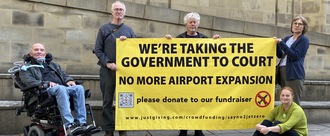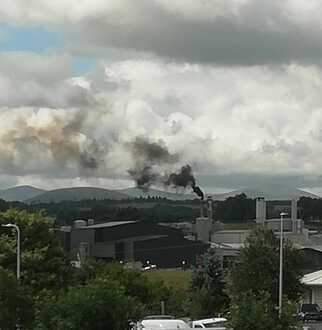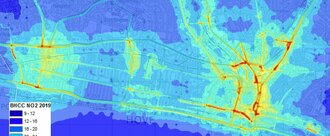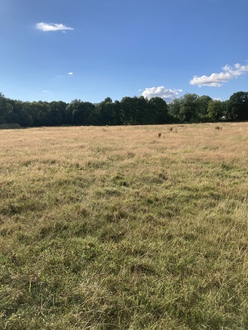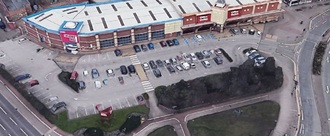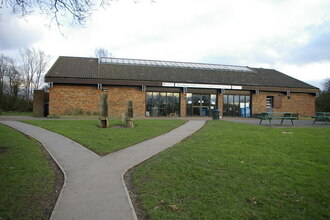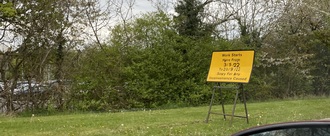-
Encourage and support King Charles to attend COP27 in EgyptIf we can get a few million supporting this petition it would encourage the decision maker and the team around him in the Palace to make a case for the Government to reconsider their ban on him going to COP27. We want the UK to be fully engaged in working for net zero by 2050228 of 300 SignaturesCreated by Stephen Hughes
-
Liz Truss must allow King Charles III to attend Cop 27To future proof the planet to sustain the lives of future generations, and literally not leave our descendants with a scorched earth. What use is financial security when we have destroyed the earth's resources.122 of 200 SignaturesCreated by Neil RP
-
STOP AIRPORT EXPANSION: REWRITE THE GOVERNMENT’S DISASTROUS NEW AVIATION STRATEGYThe Government has introduced a long-term plan which is supposed to stop the aviation industry damaging our environment. In reality, it does the opposite. The strategy allows airports to keep expanding - helping frequent flyers to fly even more and increasing noise pollution in our local communities. Not to mention the damage more flights will do to our precious planet. This isn’t about stopping families going on well-deserved holidays. There is plenty of capacity for that at our existing airports! It’s about preventing unnecessary airport expansion for the benefit of the tiny number of frequent flyers responsible for most of our environment-damaging flights. Even the Government’s own environmental experts think the plan is bad - they’ve said there can be no airport expansion if we’re to hit our crucial environmental targets! In fact, the Government has just been ordered by the courts to rewrite it’s big climate plan because it wasn’t clear or ambitious enough. The ‘Jet Zero’ strategy is part of that plan and is just as shambolic - for example, relying on unproven tech like carbon capture and hydrogen planes. It needs to be rewritten to include things like frequent flyer levies to reduce demand. That’s why we are calling on the Government to rewrite its Jet Zero Strategy - and stop all airport expansion now. Group for Action on Leeds Bradford Airport (GALBA) and Bristol Airport Action Network (BAAN)18,175 of 20,000 SignaturesCreated by Stephen Clarke
-
MP Neil Hudson MUST act on OUR behalf against the Penrith 'pong'Penrith residents have suffered the odour nuisance the Penrith 'pong' far too long. We want it to end. We want to be able to open our windows, breathe fresh air, lead normal (odourless free) lives !228 of 300 SignaturesCreated by jeff thomson
-
Make Brighton and Hove's air cleanerThe negative health consequences of high air pollution are well documented and the current draft plan will not address this significant problem. The interventions needed to achieve this in our city are clear. Our goals should be in line with WHO guidelines and that of London boroughs of 10 ug/m (NO2). The rolling out of an extended ULEZ (Ultra-Low Emissions zone), the bus only ULEZ, Zero Emission Zones and a Smoke Control Area all need to be implemented immediately. We need solutions that encourage less through traffic, while encouraging pedestrian and cycle access alongside long-term plans for a zero emissions transport network. We need clear interim targets for every year of the action plan to ensure that we do not continue to fail at the implementation of this ambitious but necessary plan. Pollution levels in our city have been illegally high for too many years. There are many interventions available to B&H to tackle air pollution but the current draft is vague on these actions and omits many significant opportunities. The failure to create a robust and enforceable plan risks the continuation of the associated health harm, suffering and death that the large body of scientific evidence shows is already occurring in the city.311 of 400 SignaturesCreated by Brighton Health
-
Save our Vital Grassland Habitat in LlantarnamThe local councillors for Llantarnam ward have decided they want to destroy a vital grassland habitat without consulting constituents first. The old Llantarnam school rugby fields have been left to rewild for many years now. There is no access issues with the field already having a path around the perimeter and this destruction can’t be justified by any safety issues. The area is currently supporting an abundance of wildlife from insects to small mammals/birds and is providing a perfect hunting ground for Owls that are struggling in other areas of Wales due to a lack of grassland that has been left to rewild like this. The area is also now home to many wildflower species that are supporting local pollinators. The fact it has been left to rewild for so long also means that saplings including Oak trees have started to grow here. It would be a travesty to destroy this vital and unique habitat. The Llantarnam ward already has an abundance of open green fields and sports fields for people to use but what it doesn’t have is another large habitat like this that has been left alone to rewild. Destroying this habitat would go against Torfaen councils own self declared Nature Emergency. The benefits of the rewilding the area also don’t just stop at the benefits for nature. Access to nature has proven benefits for peoples mental and physical well-being and many residents have already told me that this areas destruction would impact them greatly. This site needs to designated as Local Nature Reserve (LNR) by the council for its amazing biodiversity. This area is vital and unique habitat that has benefits both for nature and for people. Destroying an area that has been left to rewild for this long would go against the councils own self declared nature emergency.689 of 800 SignaturesCreated by Philip Davies

-
Lidl keeps the Lid on Our Porter BrookLidl’s planning application for the old Staples site trashes hopes for opening up and greening the hidden river corridor from Sheffield’s Midland Station to Endcliffe Park. The Sheaf and Porter Rivers Trust are objecting to their application 22/01163/FUL to develop another food supermarket opposite Aldi on St Mary’s Gate. Lidl are using their retail power to ignore their sadly neglected reach of the historic Brook where the Vulcan Forge once hammered away day and night. Click on the link below to see our detailed objection... https://www.sheafportertrust.org/lidlobjection211 of 300 SignaturesCreated by Sheaf & Porter Rivers Trust
-
STOP IMMINENT SEISMIC SURVEYS OFF CUMBRIAN COASTIf you care about the environment, about the different species of life in our oceans and believe these should be protected then you should join this campaign. The public have a right to know all of the facts and be given the opportunity to make an informed decision: after all, the public as well as marine life will be affected. Research suggests that Noise from these seismic blasts extend over thousands of kilometres, particularly in deeper water, impacting a wide range of marine life – from zooplankton, which are a crucial marine food source, to commercially important fish species and marine mammals such as porpoises, whales and dolphins. Effects from blasting not only cause stress, but can also damage hearing and health, and impair ability to navigate, find food, communicate, breed and migrate. Organ and tissue injury can also result.347 of 400 SignaturesCreated by Jan Bridget
-
Urge Yorkshire Water to end game bird shooting on Thornton MoorCurrently, the moor is used for grouse and partridge shooting with birds exploited as feathered targets to be killed for entertainment. The lives of these birds will end with many hitting the ground suffering from painful wounds and injuries, having not been killed outright by the shot. What’s more, native predators, including foxes, stoats and weasels, are cruelly trapped and shot to preserve large numbers of game birds for the guns. Scientists have concluded that game bird shooting results in considerable environmental harm to fragile moorland ecosystems. Not only are carbon-rich peatlands left vulnerable to erosion when the protective layer of heather is slashed away to provide fresh shoots for game birds to eat. But the release of large numbers of non-native, farmed partridges to supplement grouse numbers results in biodiversity loss when wild birds are driven out by competition and vulnerable lizards, snakes and butterflies are predated. Yorkshire Water has already halted the burning of peatlands by shooting tenants, but now it’s time for the company to up its game. With the shooting lease for Thornton Moor coming up for renewal imminently the company has the opportunity to bring it to an end. Instead, Wild Moors and the League Against Cruel Sports are calling for Yorkshire Water to restore the moor for nature, climate and enjoyment of local people. Join us to urge Yorkshire Water to end game bird shooting on Thornton Moor.4,314 of 5,000 SignaturesCreated by Wild Moors

-
North London Waste Authority - Silicone RecyclingAs a Londoner doing my best to care for the earth and its non-human inhabitants, I would really appreciate you making sure that: • there is at least one silicone recycling centre in London • every borough council will provide residents with at least one silicone recycling bin, the contents of which they may deliver to the above-mentioned recycling centre. The use of such facilities would not only lead to a reduction in both waste and related clean-up operations, and an increase in the availability of a durable resource, but would set a good example to other cities, both in the UK and abroad. Best wishes, the undersigned.33 of 100 SignaturesCreated by Jackie Joseph
-
Birmingham City Council Re Open Woodgate Valley Visitors CentreThe Woodgate Valley Visitors Centre needs to be open and this is why we need your help to get it back open. If you are a resident within the South Birmingham area we are asking you to support this petition by signing it sharing it with your friends and family.886 of 1,000 SignaturesCreated by Michael Thawe
-
We want Severn Trent & WCC Highways to close the A441 during current worksBordesley residents in particular, but also other residents of Millward Meadows and Hither Green Lane will suffer massive delays over 5 months resulting in lost income, lost time and increased traffic fumes.272 of 300 SignaturesCreated by Karen Kilbride
Hello! We use cookies to improve your experience by providing insights into how the site is being used. Find out more.


